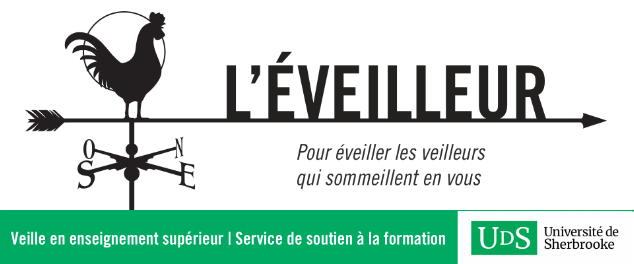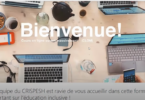Pas besoin d’être devin pour réaliser que la crise sanitaire et financière amenée par le virus COVID-19 obligera les institutions universitaires à se redéfinir et à se réorganiser. Le secteur étant déjà fragilisé, l’impact des changements sociétaux que nous traversons frappera durement certaines institutions de formation supérieure.
Le service d’investissement de la firme Moody’s vient néanmoins de publier un rapport qui conclut essentiellement que “[l]a pandémie de coronavirus va accélérer la transformation du modèle économique de l’enseignement supérieur, de nombreuses universités développant des capacités en ligne et élargissant leur offre de programmes sans diplôme ni certificat – des changements qui seront très perturbateurs d’ici un an ou deux, mais qui renforceront les perspectives de crédit pour l’ensemble du secteur.” [traduit avec deepl.com, puis ajusté; nos emphases]
Toutefois, “…toutes les universités n’ont pas les ressources ou la culture nécessaires pour agir rapidement et le coronavirus va accélérer les menaces existentielles pour certaines. Les universités qui ont fait des investissements importants dans leurs capacités numériques et qui ont un esprit d’entreprise et un processus décisionnel plus souple seront mieux placées pour s’adapter”, estime Pranav Sharma, vice-président adjoint de Moody’s, dans une déclaration.
“After the coronavirus threat passes, universities that lack strong brand names and consistent student demand will need to adapt their models more quickly than universities that enjoy top market position, Moody’s found. The on-campus experience is expected to continue attracting many traditional-age students, however, as are programs requiring hands-on work.” (Seltzer, 2020)
Dans un autre article paru plus tôt le mois dernier, Joshua Kim, directeur des programmes et de la stratégie en ligne au Dartmouth Center for the Advancement of Learning, encourageait les décideuses et décideurs universitaires à planifier pour les quatre prochaines années comme si le virus était la “nouvelle normalité”. Bien que l’expérience étudiante traditionnelle soit difficile à imaginer sans une majorité d’activités présentielles, il estimait que l’on ne pouvait que faire des gains à planifier pour la situation la plus défavorable, quitte à ce que la situation redevienne similaire à la réalité que nous avons autrefois connue:
“The good thing is that none of this planning is likely to go to waste. In the happy event of a quick vaccine, many of the systems and processes designed for a prolonged time of distancing/masking/de-densification could be repurposed.
Public health may become one more element of universal design for learning.
Pedagogies that are effective in contexts designed to prevent the spread of disease may also work well when preventing infection need no longer be the top concern.
With some serious amounts of hard work and creative thinking, we may be able to design a college experience that achieves pre-pandemic outcomes while the pandemic still rages.” (Kim, 2020)
Sources:
Kim, Joshua, « Academic Planning for a Worst-Case Long-Term COVID-19 Scenario », Inside Higher Ed, 19 août 2020
Seltzer, Rick, « Moody’s: Coronavirus Drives New Business Models, Disruption for Higher Ed », Inside Higher Ed, 27 août 2020








Autre article passionnant à propos des compétences de gestion pour cette “nouvelle normalité”:
Hartmann, Michael, « Are university leaders up to the challenges of the ‘phygital’ world? », Times Higher Education, 10 septembre 2020
Harmann est professeur de gestion à l’Université McMaster de Hamilton qui était l’hôte d’un sommet sur la gestion dans notre monde en fluctuation intitulé le “Collaboratorium“…
« …[T]he neologism “phygital” [contraction de “physical” et “digital”] captures the balancing act required as organisations dip their toes back into physical interaction, without abandoning hard-won digital capabilities. » […]
« A defining issue for many organisations, including university administrators, will be how many people will want to go back to working (or teaching) in physical proximity. For those who stay home, there is the dangerous potential for a constant 24-hour barrage of data, meetings and emails, as opposed to discrete moments of contact. Then there are the apparently mundane practical questions. If you cut your finger with a bread knife making a sandwich in your kitchen, is that a workplace accident?
On a bigger scale, flourishing in the phygital world means the massive redeployment of resources – the reduction of expenditure on physical infrastructure while allocating much more budget to home-based technology and physical and emotional support.
Agility was already an organisational imperative, but now it has taken on a new urgency as organisations have to be incredibly nimble in responding to disrupted business models and shrinking balance sheets. » […]
«The problem is that large legacy organisations such as universities are in many ways hardwired to resist the type of changes demanded. As a Collaboratorium speaker commented, business schools may end up teaching the principles of business agility and the principles of design thinking, open innovation and risk-taking to business executives, while the people at the top of their own institutions remain entirely ignorant of them. »